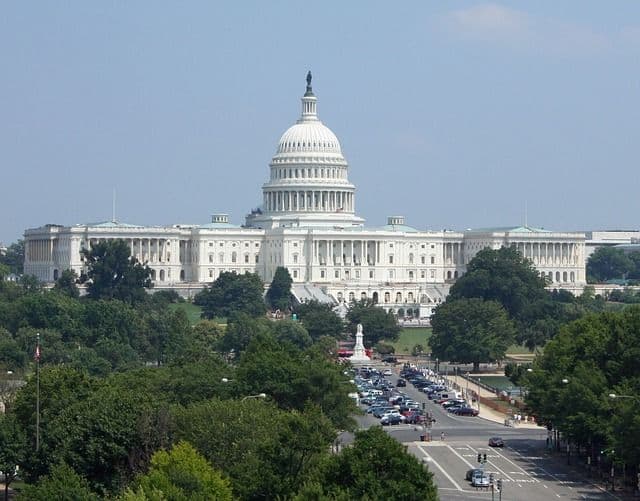What Is Crypto Tax And Crypto Regulation?
In this article, we will be discussing crypto tax and regulations across countries in the world and the benefits

The global adoption of cryptocurrencies continues to rise, as digital assets have proven that they are here to stay. The rise of its fortunes and popularity continues to be a good thing. There seem to be some issues surrounding the growth of the space. One of such issues is Crypto Tax and Regulation. The financial regulators of many nations are still struggling to grasp the concept of cryptocurrency. This has seemingly limited crypto adoption worldwide. Also, these deficiencies have impacted crypto taxes and Regulations. These issues are a significant deterrent to the crypto space. However, should countries release a fair tax policy, it will help the crypto sector. In this article, we will be discussing in length about crypto tax.
What Is Crypto Tax and Crypto Regulation?
Crypto tax is the fee paid to financial regulators from earnings in cryptocurrency. It is also worthy to note that regulators take the issue of crypto taxation seriously. Defaulters face huge penalties should any case of a default in payment arise.
Crypto regulations are laws enacted by financial regulators whose purpose is to guide cryptocurrency activities. The regulations direct both traders and firms on carrying out their activities. These laws, if abided by, will ensure that Crypto investors, traders, and service firms, will never fall into the black books of the law.
A Look Into Crypto Tax
Regulators have classified digital assets differently across countries where crypto trading is high. The U.S IRS sees cryptocurrencies as capital assets. This means that profits realized from selling them are taxable. Taxes are levied depending on how long you have held on to the assets. For example, crypto traders will pay short-term capital gains on digital assets held for less than a year. Alternatively, they will pay long-term capital gain taxes on profits realized from sales of their holdings if purchased for more than a year.
According to the IRS, if you use your cryptocurrency to buy goods and services, it will be classified as a sale of the asset. This means that you will owe capital gains taxes, depending on your profits and how long you have held on to the digital asset. Cryptocurrencies earned from mining received as payment for goods and services are taxable. According to the IRS, crypto investors and traders must pay tax on crypto earned. This is because they view them as regular taxable income.
A Look Into Crypto Regulation
Many crypto enthusiasts have called on regulators globally towards proper regulation of the crypto space. This is because analysts believe that the adoption of crypto will grow with appropriate laws. Another reason is that countries should focus more on regulations instead of banning crypto trading activities. With this, the government will be making huge returns from crypto tax. Unfortunately, crypto trading is prohibited in some parts of Africa and Asia.
Analysts believe that these nations have no policies to guide crypto trading activities in their space. A typical example of such a nation is Nigeria- a country that prides itself as the economic hub and the giant of Africa. It is currently illegal to trade cryptocurrency in the country. The nation, via its central bank, announced that trading cryptocurrency was illegal earlier in the year. It also said that citizens dealing with digital assets would face prosecution.
Its Apex financial body has since instructed commercial banks to block accounts of citizens affiliated with cryptocurrency. While it is pretty unfortunate, analysts believe that nations take crypto regulations seriously instead of banning them. In their opinion, cryptocurrency has come to stay.
What are some Essential Regulations for Crypto in 2021
With crypto trading becoming prominent, countries have taken different approaches to regulate the assets. In the U.S, cryptocurrencies are Securities. The Securities and Exchange Commission (SEC) regulates Crypto Exchange under the Bank Secrecy Act (BSA). Traders must comply with AML/CFT obligations and register under the Financial Crimes Enforcement Network (FinCEN). Canada is also another nation where crypto trading activities are legal.
The Financial Transactions and Reports Analysis Centre of Canada (FINTRAC) regulates the assets. 2021 was an important year for the country’s crypto community. This was because of the license of its Bitcoin exchange-traded fund and Ethereum exchange-traded fund. The North-American government classifies crypto exchanges as Money Service Business (MSB), complying with AML/CFT regulations. To kickstart their operations in Canada, the exchanges must earn a license from FINTRAC. The United Kingdom has similar regulations with the U.S and Canada. However, it currently prohibits exchanges licensed by Financial Conduct Authority (FCA) from offering Crypto derivatives trading.
Crypto Regulation In Asia
China, Japan, Singapore, and South Korea are Asia’s biggest players in the cryptocurrency space. This is despite the Chinese government’s crackdown on cryptocurrency mining. Earlier in May 2021, China’s government banned Crypto mining in the nation. Following suit, its apex financial regulator- The people’s Bank of China (PBOC), also forbade crypto exchanges from operating.
Fortunately, the regulators in Japan seem to take a promising approach towards crypto and exchanges. Firstly the Financial Services Agency (FSA) expects all registered exchanges to comply with AML policies. Secondly, FSA classifies gains on cryptocurrencies as miscellaneous income. With this, holders must pay little taxes on them. However, it appears that Singapore has the best crypto tax policy in Asia, as crypto holders do not pay tax on long-term capital gains. Its regulator, the Monetary Authority of Singapore (MAS), licenses Crypto Exchanges. It appears to understand cryptocurrency properly and sees digital asset trading as a solid future investment tool.
Conclusion
Many nations have sorted the idea of crypto tax in Europe, America, and some parts of Asia. It appears that Africa is where cryptocurrency adoption is the slowest in 2021. Crypto analysts globally are optimistic about the fortunes of crypto adoption in Africa and Asia. They believe that if regulators do better, they could become global hubs for cryptocurrency to thrive.





























